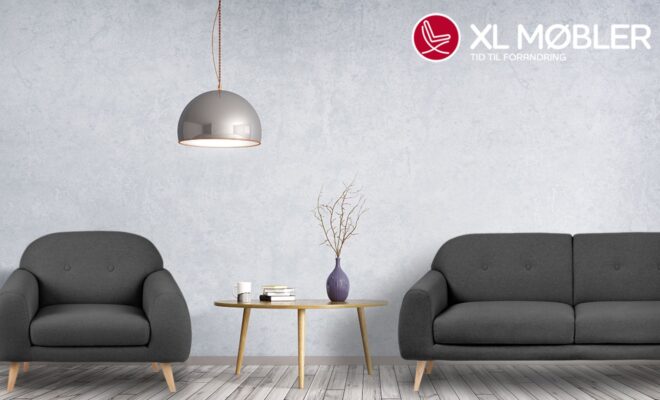Wiemann’s Sustainable Manufacturing Practices: A Look Behind the Scenes

Wiemann is a renowned German furniture manufacturer specializing in creating elegant, functional, and sustainable furniture pieces for bedrooms and home offices. Over the years, Wiemann has earned a reputation for producing high-quality furniture that is durable, beautiful, and environmentally friendly. In this blog, we will take a behind-the-scenes look at Wiemann’s sustainable manufacturing practices and how they contribute to reducing the environmental impact of furniture production.
Sustainability has become a crucial factor across industries. Consumers are now more aware of the environmental impact of their purchases and prefer brands that prioritize eco-friendliness. Wiemann recognizes the importance of sustainability and has made it a core component of its manufacturing practices. In this blog, we will explore how Wiemann creates furniture that is both sustainable and beautiful.

Use of Sustainable Materials
The first step toward sustainable manufacturing practices is the use of sustainable materials. Wiemann employs a variety of materials, including wood, glass, and metal, to create its furniture pieces. The company prioritizes the use of wood from sustainable sources, such as FSC-certified forests, and avoids materials that have negative environmental impacts.
Wiemann’s use of sustainable materials extends beyond furniture pieces. The packaging materials used by the company are also sustainable. Wiemann uses recyclable and biodegradable packaging materials like cardboard and paper for its packaging to reduce waste and minimize the environmental impact of the manufacturing process.
Efficient Resource Utilization
Efficient resource utilization is another key aspect of Wiemann’s sustainable manufacturing practices. The company has implemented several measures to reduce waste and conserve resources. One such measure is the use of modern machinery and technologies that optimize material usage. The machines employed by Wiemann are designed to minimize waste and enhance production process efficiency.
Additionally, Wiemann has implemented a comprehensive recycling program that allows the company to recycle waste materials like wood shavings and sawdust into other useful products. This not only reduces waste but also conserves resources, as recycled materials require less energy for production.

Energy Conservation
Energy conservation is another important facet of Wiemann’s sustainable manufacturing practices. The company has implemented various measures to reduce energy consumption and minimize its carbon footprint. Wiemann utilizes energy-efficient lighting systems in its factories and offices and has invested in renewable energy sources like solar panels for electricity generation.
Furthermore, Wiemann has implemented a comprehensive energy management system that monitors real-time energy consumption. This system allows the company to identify areas with high energy consumption and take measures to reduce it, such as optimizing machinery usage and reducing idle times.
Transport
Transportation significantly contributes to carbon emissions, and Wiemann has taken steps to mitigate its impact. The company prioritizes the use of local suppliers and materials to minimize transportation distances and reduce the carbon footprint of its supply chain.
Wiemann has also invested in eco-friendly transportation options like electric and hybrid vehicles to reduce emissions from its transportation fleet. Additionally, the company uses packaging materials that are lightweight and compact, lowering transportation costs and minimizing the environmental impact of transportation.

Certifications: Wiemann’s commitment to sustainability is reflected in its certifications. The company has received several certifications for its sustainable manufacturing practices, including FSC certification (Forest Stewardship Council), ensuring that the wood used in its furniture pieces comes from responsibly managed forests.
Moreover, Wiemann has obtained the PEFC certification (Programme for the Endorsement of Forest Certification), another certification that confirms responsible forest management. These certifications are proof of Wiemann’s commitment to sustainability and its efforts to reduce the environmental impact of its manufacturing practices.
Conclusion
In conclusion, Wiemann’s sustainable manufacturing practices go beyond its products and extend deep into its processes. From responsible material sourcing to efficient resource utilization, energy conservation, transportation considerations, and certifications, Wiemann is dedicated to making environmentally conscious choices at every step. By prioritizing sustainability, Wiemann not only reduces its environmental impact but also creates furniture pieces that are beautiful, functional, and long-lasting. Consumers can trust that choosing a Wiemann furniture piece is a responsible decision, supporting a brand that places sustainability and eco-friendliness at the forefront.
Overall, Wiemann’s sustainable manufacturing practices serve as a model for other companies in the furniture industry and beyond. By adopting sustainable practices, companies can reduce their environmental impact and create a better future for all of us. Wiemann’s commitment to sustainability is not only a responsible business decision but also a moral obligation to protect the planet and leave a positive legacy for future generations.








